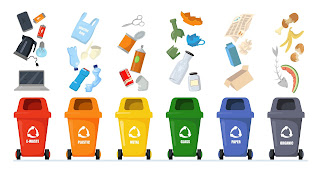The Importance of Environmental Sustainability in Modern Business
In the face of climate change, pollution, and natural resource depletion, environmental sustainability has never been more critical. Companies, individuals, and communities are waking up to the reality that our actions today will have a profound impact on the planet’s future. Embracing sustainability is no longer optional—it’s a responsibility.
What Is Environmental Sustainability?
Environmental sustainability refers to the capacity to meet the needs of the present without compromising the ability of future generations to meet their own needs. This involves managing natural resources efficiently, reducing waste, conserving biodiversity, and promoting renewable energy sources.
At the heart of sustainability is a simple but powerful idea: balance. It’s about finding a harmonious relationship between economic development, environmental protection, and social well-being. Whether you’re an individual looking to reduce your carbon footprint or a business aiming to operate in a more eco-friendly way, sustainability plays a pivotal role in creating a more resilient future.
Why Is Environmental Sustainability Important?
There are several reasons why environmental sustainability is so vital:
-
Combatting Climate Change: Rising global temperatures, extreme weather events, and sea-level rise are all consequences of unchecked climate change. Sustainability practices, like reducing carbon emissions and transitioning to renewable energy, help mitigate these effects.
-
Conserving Resources: Many of the resources we rely on are finite—like fossil fuels, minerals, and clean water. Adopting sustainable practices ensures that these resources are preserved for future generations.
-
Protecting Biodiversity: Habitat destruction, pollution, and overexploitation of species have led to an alarming rate of biodiversity loss. Sustainability efforts protect natural ecosystems and the species that depend on them, helping maintain a healthy planet.
-
Improving Health: A cleaner environment leads to fewer health problems caused by pollution, contaminated water, and chemicals. Sustainable agriculture and food production methods also lead to healthier, more nutritious food options.
For all these reasons and more, environmental sustainability is essential not only for the planet’s well-being but also for the future of human societies and economies.
How Can We Contribute to Environmental Sustainability?
You don’t have to be a scientist or policymaker to make a difference. Here are some simple ways anyone can support sustainability:
-
Reduce Waste: Opt for reusable products, recycle whenever possible, and reduce food waste by buying only what you need.
-
Conserve Water and Energy: Use water-saving devices, install energy-efficient appliances, and be mindful of your electricity consumption.
-
Make Sustainable Food Choices: Choose plant-based foods, buy locally grown products, and reduce your meat consumption.
-
Opt for Green Transportation: Walk, bike, or take public transport instead of driving alone, and consider switching to electric vehicles if possible.
Small daily habits add up to a large collective impact when it comes to sustainability.
The Role of Businesses in Driving Sustainability
While individuals can make a difference, businesses have an even larger role to play in driving environmental sustainability. Companies have the power to influence supply chains, consumer behavior, and entire industries. By adopting sustainable practices, they can help reduce their environmental impact and lead the way toward a greener future.
A great example of a business prioritizing sustainability is SwagCycle, a company that helps brands manage the lifecycle of their promotional products. Instead of sending unused branded merchandise to landfills, SwagCycle offers solutions to recycle, donate, or upcycle items into new, functional products. This approach not only reduces waste but also aligns with the growing consumer demand for corporate responsibility and sustainability.
By working with businesses like SwagCycle, companies can contribute to environmental sustainability while also reinforcing their commitment to a better, more sustainable world.





Comments
Post a Comment